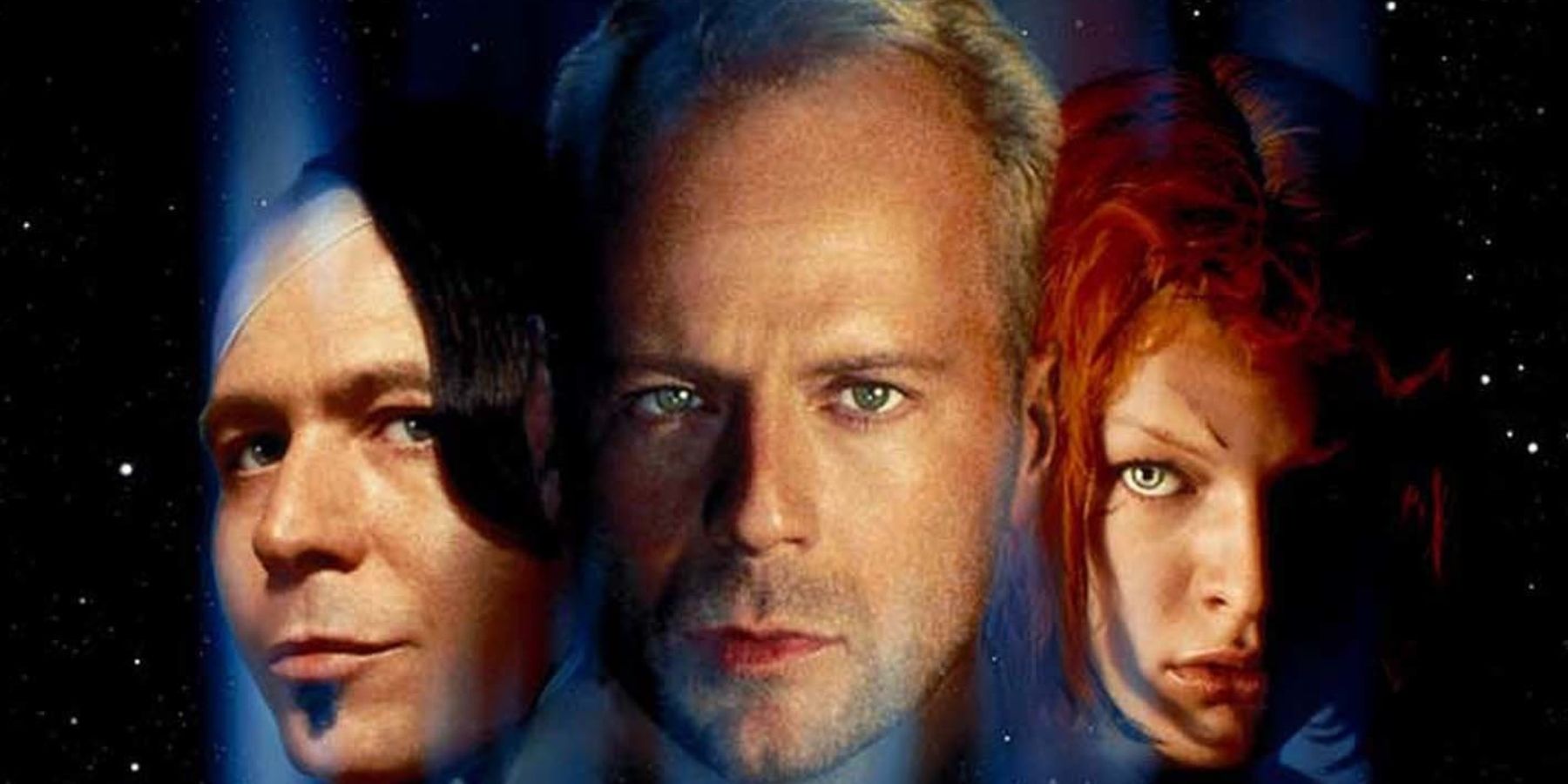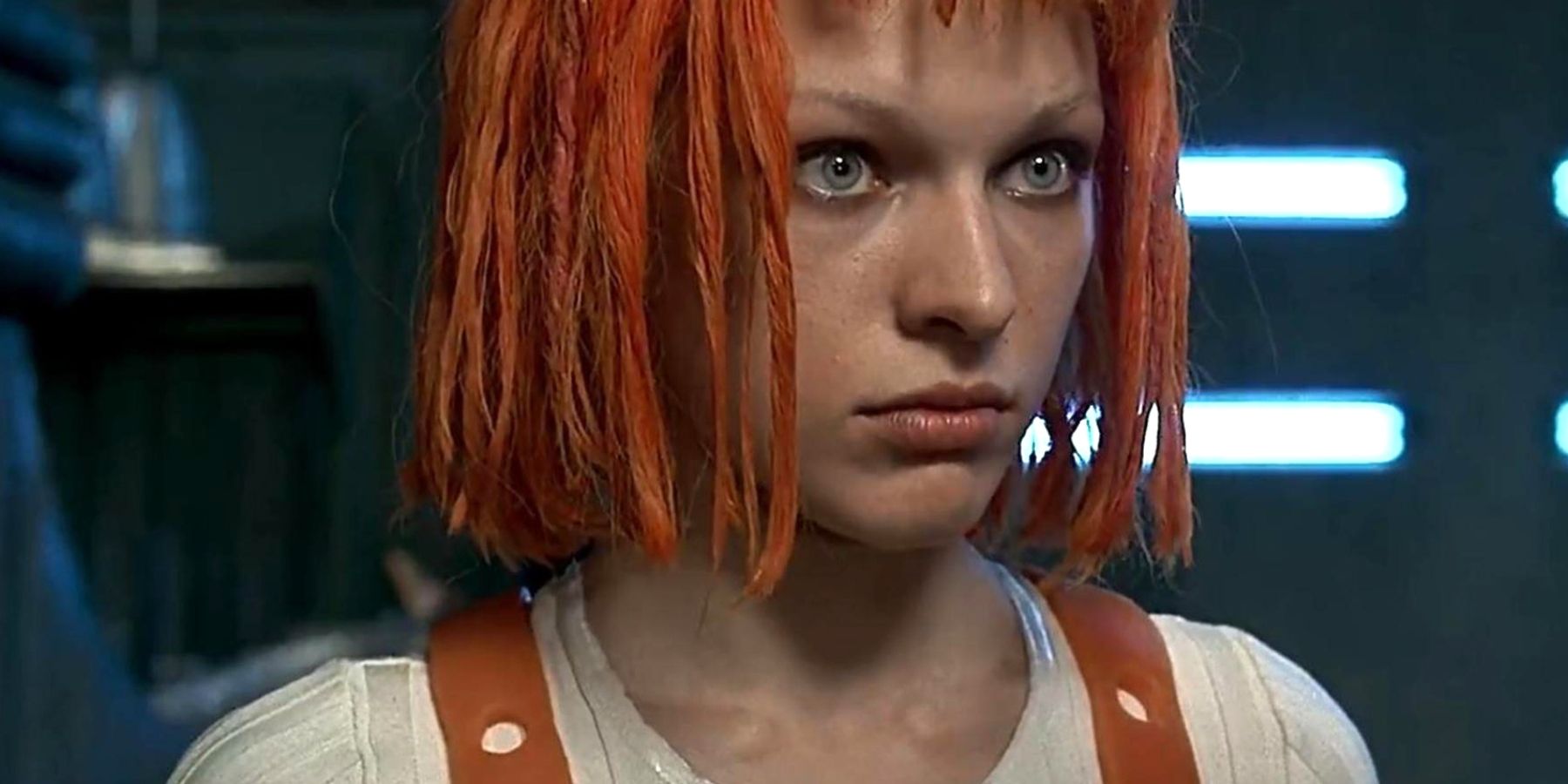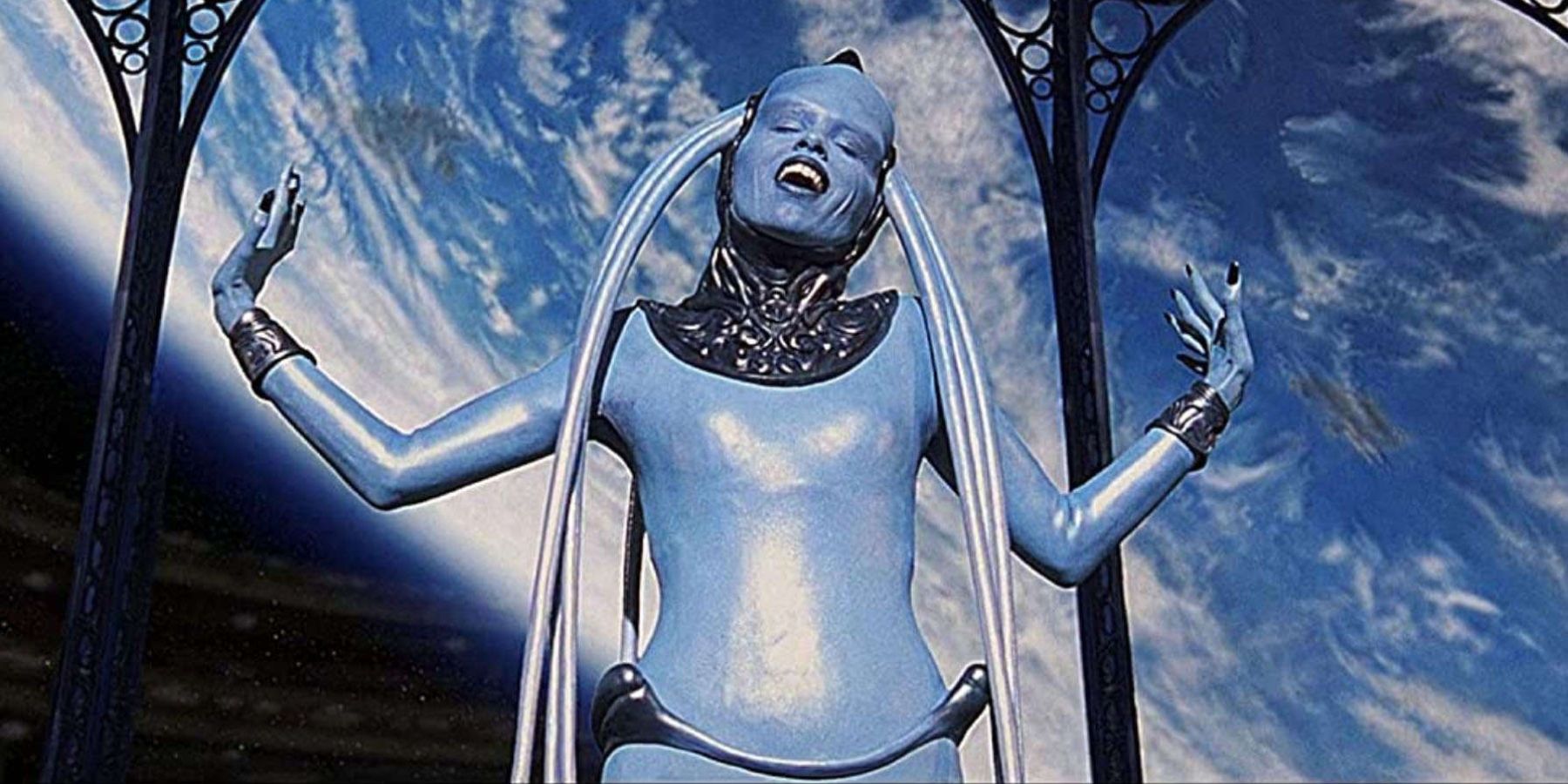The genres of Science Fiction and Fantasy have passed some fairly impressive anniversaries recently, being 20 years since the first Harry Potter and first Lord of the Rings hit cinemas, in equal parts making audiences around the world feel both wistfully nostalgic, but also very old. The films stand up even today, but what a difference 5 years make, shown through the datedly scantily clad Milla Jovovich and beautifully 90’s envisioned depiction of the future present in Luc Besson’s The Fifth Element. It is arguably one of the most divided sci-fi films of all time, being simultaneously one of the best and worst iterations into this vast genre.
The Fifth Element starts in a fairly typical way - overloading audiences with a whole lot of backstory about an almighty evil that wants to destroy all life in the universe. A chaos-swarming fiery ball of nasty audiences see first hand when the president Lindberg (played stoically by the late Tom Lister Jr.) attempts to fire a starship's worth of nukes at it, despite the pleas of Father Vito Cornelius (Ian Holm). Holm is a long way from home in this role, but his frantic comedic portrayal of a man with the fate of the universe riding on his shoulders is masterful.
The best way to describe the Fifth Element is that it is the personification of delirious cohesion, a vast and often confusing mess of contradictory visuals and themes that somehow manage to work well with one another. It is both funny and serious, heavy handed but somehow also full of intricate and carefully thought out detail. There is a surprising amount of effort hidden beneath the vibrant facade that might surprise many audiences, like how the seemingly random and made up language sprouted by Milla Jovovich’s character LeeLoo, was actually a 400-word legitimate language director Luc Besson created, as well as how every costume was designed by the Jean Paul Gaultier.
The film's biggest downfall is that it is almost progressive, a film before its time, but somehow manages to contradict itself into leaving audiences in a strange daze of whether or not what they are seeing is great, or outdated. The biggest example is how, at its core, it is a story of a woman who holds the power to save all life, a strong, fearsome and capable heroine (so far so good), but is only able to do that if a man tells her that he loves her - and she’s barely ever fully dressed.
It then throws in one of the queerest and openly flamboyant, gender-bending and transgressive character Ruby Rhod (a role played by comedian Chris Tucker, but which was originally written with Price in mind) that audiences rarely see even today in blockbusters, representing a vastly unrepresentative group of people, but then pairs this with the super masculine Bruce Willis, who plays the films action hero and love interest Korben Dallas. He, like most of Willis’s roles, is the gruff sarcastic average Joe - a cynical cowboy who has a heart of gold. These contradictions leave it hard to tell what the true message of the film is, and whether or not these characters and themes are only put in place for comedic reasons, rather than intellectual societal commentaries.
On the topic of humor however, this is where the film truly shines. Upon first viewing, it might be easy for audiences to think of the film as an unsuccessful attempt at a serious sci-fi action film, but it's during the second act that the comedy and flamboyance of the film comes through. It has a bombastic quality to it, overloading audiences with well written interjecting conversations, wonderfully eccentric set design, eclectic surroundings, all topped off by the over-exaggerated characters like the tantrum-ous Zorg, endlessly chattering Ruby, the jittery priest character played perfectly by Holmes, and the literal incarnation of evil as a smoldering ball of death. How the humor plays out throughout the film relates to the emotions of LeeLoo, as whenever she's okay the laughs keep coming, but when she's afraid or angry the film takes a more serious turn. This is all mirrored by the film's music score in a sometimes over-exaggerated manner, but even this fits well with the nature of the story.
While the music is something that won’t particularly blow audiences away there is one groundbreaking exception. The film's most memorable scene is the unforgettable opera-come-futuristic pop performance by Diva Plavalaguna (played by Maïwenn Le Besco, but dubbed by Inva Mula). The scene is a four minute single take, where Dallas (and audiences alike) are mesmerized by the soprano singing the famous mad scene from Lucia di Lammermoor, but just as the audience is lulled into a false sense of security, the almost impossible vocals of an operatic pop/dance sequence comes out.
In a sense the whole film is like this performance. Presenting audiences with one thing they think they know and understand, and then flipping it on its head. This is done to great effect, showing science fiction is a whole new and refreshing light, but it’s also potentially one of the films greatest downfalls, seemingly presenting something progressive but then leaving audiences confused as to what the real message of the film is. Overall the Fifth Element still stands as an enigmatic sci-fi classic that holds up even today, 25 years later, but remains firmly rooted as a film of it’s time.



